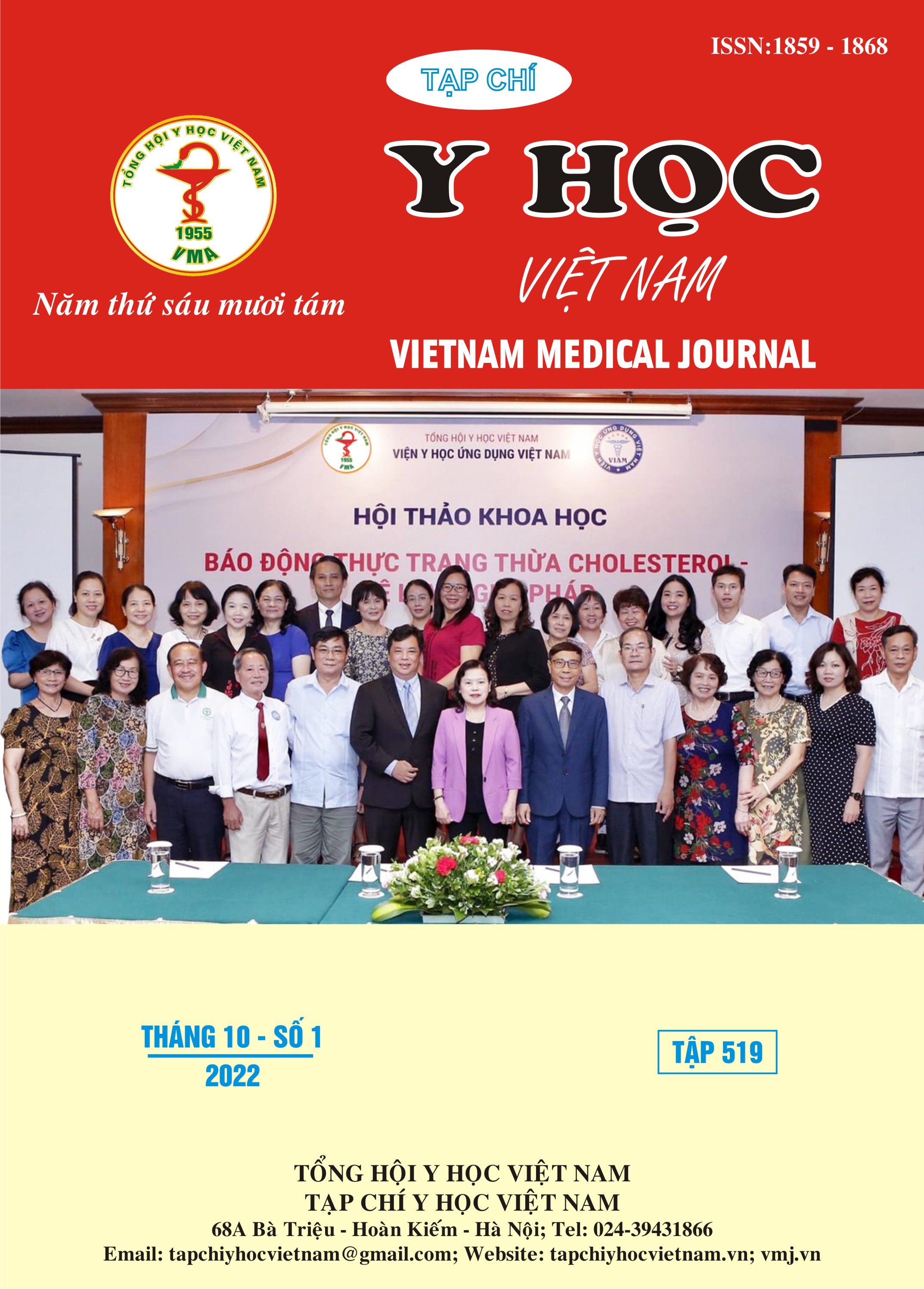A STUDY ON CLINICAL AND HISTOLOGICAL CHARACTERISTICS OF IDIOPATHIC INFLAMMATORY MYOPATHIES
Main Article Content
Abstract
Background: Idiopathic inflammatory myopathies (IIMs), also known as myositis, are a heterogeneous group of chronic autoimmune conditions affecting the muscles and extra muscle tissues/ organs with varying clinical manifestations, treatment responses and prognosis. Objectives: This study aimed to describe the clinical and histopathology in the diagnosis of idiopathic inflammatory myopathies and sub-groups classification. Materials and methods: Retrospective, descriptive case series. A total of 46 patients were diagnosed with IIMs at the Department of Pathology, University of Medicine and Pharmacy at Ho chi Minh city from January 1st, 2019, to June 31st, 2022. Results: The mean age at diagnosis of IIMs was 45.53 ± 17.3 years old; the male ratio was 2.29:1. 73.9% of cases presented muscle weakness, primarily proximal extremities. The average blood CK concentration was 4472.96 ± 4189.42 U/L. 2.8% of patients showed no abnormalities on electromyography, and 97.2% presented abnormalities. The highest percentage of MSA was anti-SRP (18.8%), followed by anti-HMGCR (12.5%), and the highest frequency of MAA was anti-Ro (18.8%). Thirty-four cases (73.9%) had infiltration of inflammatory cells in endomysium. There were no cases with rimmed vacuole. Muscle fiber necrosis was observed in 28/46 cases (60.9%), myophagocytosis in 15/46 cases (32.6%) and perifasicular atrophic fiber 5/46 cases (10,9%). Conclusions: Diagnosis of IIMs and subtype should be based on clinical symptoms, muscle enzymes, serological tests, electromyography, imaging and histopathology.
Article Details
Keywords
Idiopathic inflammatory myopathies, rimmed vacuole, myophagocytosis, perifasicular atrophic fiber
References
2. Gupta L, Naveen R, Gaur P, Agarwal V, Aggarwal R. Myositis-specific and myositis-associated autoantibodies in a large Indian cohort of inflammatory myositis. Semin Arthritis Rheum. Feb 2021;51(1):113-120. doi:10.1016/ j.semarthrit. 2020.10.014
3. Nguyen Thi Phuong T, Nguyen Thi Ngoc L, Nguyen Xuan H, Rönnelid J, Padyukov L, Lundberg IE. Clinical phenotype, autoantibody profile and HLA-DR-type in Vietnamese patients with idiopathic inflammatory myopathies. Rheumatology (Oxford). Feb 1 2019;58(2):361-363. doi:10.1093/rheumatology/key313
4. van der Meulen MF, Bronner IM, Hoogendijk JE, et al. Polymyositis: an overdiagnosed entity. Neurology. Aug 12 2003;61(3):316-21. doi:10.1212/wnl.61.3.316
5. Pinto B, Janardana R, Nadig R, et al. Comparison of the 2017 EULAR/ACR criteria with Bohan and Peter criteria for the classification of idiopathic inflammatory myopathies. Clin Rheumatol. Jul 2019;38(7):1931-1934. doi:10.1007/s10067-019-04512-6
6. Betteridge Z, Tansley S, Shaddick G, et al. Frequency, mutual exclusivity and clinical associations of myositis autoantibodies in a combined European cohort of idiopathic inflammatory myopathy patients. J Autoimmun. Jul 2019;101:48-55. doi:10.1016/j.jaut.2019.04.001
7. Chen Z, Hu W, Wang Y, Guo Z, Sun L, Kuwana M. Distinct profiles of myositis-specific autoantibodies in Chinese and Japanese patients with polymyositis/dermatomyositis. Clin Rheumatol. Sep 2015;34(9):1627-31. doi:10.1007/s10067-015-2935-9
8. Lundberg IE, Fujimoto M, Vencovsky J, et al. Idiopathic inflammatory myopathies. Nat Rev Dis Primers. Dec 2 2021;7(1):86. doi:10.1038/s41572-021-00321-x


